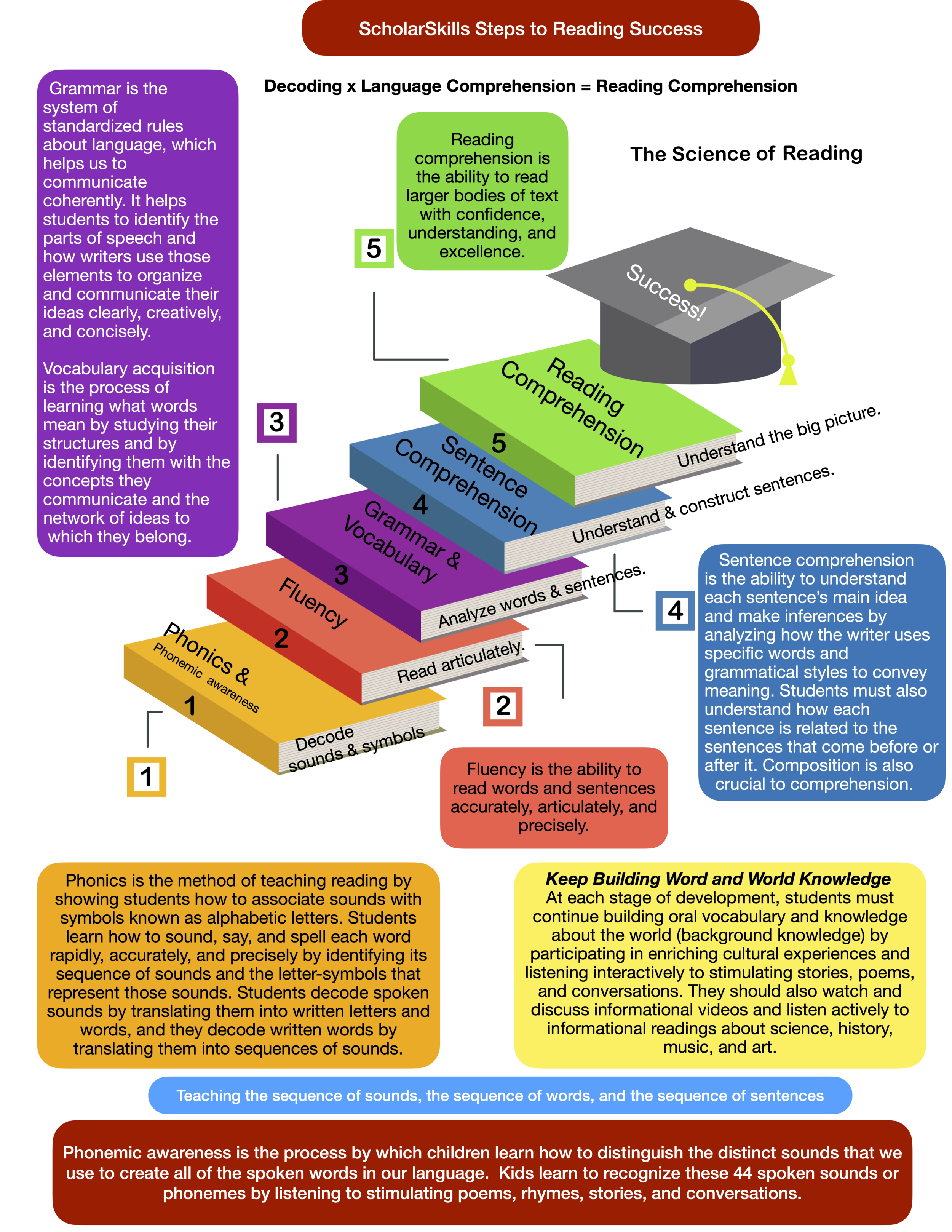The Problem:
Schools have failed to implement the science of reading.
The reading crisis has occurred in large part to a systemic failure in schools to align their literacy curriculums with evidence-based strategies such as phonics.
The Science of Reading:
What every reading teacher should know about
teaching reading
How the National Reading Panel Report can help schools to align their instruction with evidence-based strategies.
“The NRP analysis indicated that systematic phonics instruction is ready for implementation in the classroom. Findings of the Panel regarding the effectiveness of explicit, systematic phonics instruction were derived from studies conducted in many classrooms with typical classroom teachers and typical American or English-speaking students from a variety of backgrounds and socioeconomic levels. Thus, the results of the analysis are indicative of what can be accomplished when explicit, systematic phonics programs are implemented in today’s classrooms. Systematic phonics instruction has been used widely over a long period of time with positive results, and a variety of systematic phonics programs have proven effective with children of diferent ages, abilities, and socioeconomic backgrounds.”
How the science of reading can be implemented in a structured literacy program in schools
How to create a structured literacy program
Why is instruction in phonics so important?
According to the National Reading Panel’s Report,
phonics is the key to reading success.
“The meta-analysis revealed that systematic phonics instruction produces significant benefits for students in kindergarten through 6th grade and for children having difficulty learning to read. The ability to read and spell words was enhanced in kindergartners who received systematic beginning phonics instruction. First graders who were taught phonics systematically were better able to decode and spell, and they showed significant improvement in their ability to comprehend text. Older children receiving phonics instruction were better able to decode and spell words and to read text orally, but their comprehension of text was not significantly improved.”

